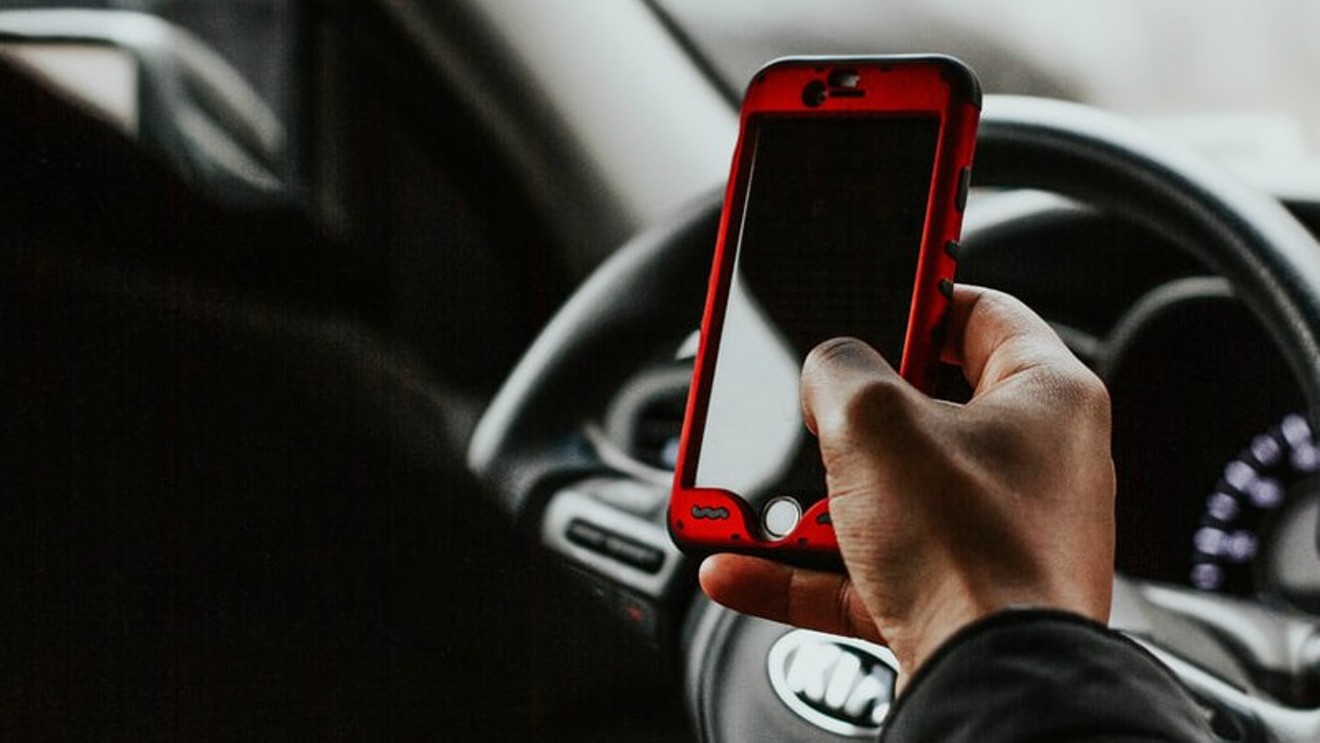"Our hope is that there's more and more momentum as our roads get more and more congested," says O'Sullivan, whose O'Sullivan Law Firm practice developed the Denver Accident Map, an excellent online resource that closely tracks metro-area traffic mishaps. "I think people are seeing the effects of distracted driving at a scale they haven't seen before, and hopefully that will influence them to reach out to their representatives and senators to try to get this law passed."
Along these lines, O'Sullivan's practice has launched an online petition that invites folks to "help us make the case for a safer Denver. ... If you believe Colorado should put drivers, motorcyclists, bicyclists and pedestrian safety ahead of operating a device while driving, we urge you to support this bill and sign our petition."
Senate Bill 20-065 requires that adult drivers use mobile electronic devices such as cell phones by way of hands-free accessories. If it passes, those who violate this edict will be fined $50 and lose two points on their license for a first offense, $100 and another two points for a second, and $200 and four points for a third or more — and the punishment rises to $300 and four points if texting is involved.
In some ways, O'Sullivan finds the failure of the legislation to date puzzling. "This is a non-partisan issue," he allows, "and I think everybody acknowledges that having a phone in your hand while driving is dangerous. I don't know anybody who disagrees with that."
Problem is, some of the most recalcitrant Coloradans when it comes to holding a cell phone while behind the wheel are the very people with the power to make it illegal. "House members and senators want to use their phone as they drive to work at the Capitol every day," O'Sullivan maintains. "We have to fight that and make them realize the behavior is dangerous and risks lives."

Scott O'Sullivan, center, believes fewer motorcyclists in Colorado will die in traffic accidents if handheld cell phone use while driving is prohibited.
The ACLU of Colorado has also advocated against the measure under the theory that cops could use it as a pretext for stopping and then harassing drivers of color. "Their essential position is they don't want any new laws because they're concerned about its effect on minority populations," O'Sullivan notes. "Now, I acknowledge that racial profiling is a 100 percent real thing. But data from the Colorado State Patrol shows that the majority of people pulled over for texting and driving are Caucasians; they don't come from African-American or Hispanic backgrounds. That still doesn't alleviate the ACLU's concerns, and unfortunately, we live in an age when just about any traffic interaction can be used in a negative way by a bad officer. But in my opinion, we still have to find laws that are sensible and help protect the public, and if we take a stance that we can't ever have any new laws, we're in a situation where people are dying needlessly."
There's also the question of whether such laws actually work; last session, opponents cited a University of Colorado Boulder study that found no evidence that a cell-phone ban in California reduced accidents. To combat such assertions, O'Sullivan says, "we're going to be a little more data-driven this year, try to bring more facts and figures and statistics that show not only the danger, but the percentage of people who are using their phones. The Colorado Department of Transportation did a study a couple of years ago, and in a survey, more than 50 percent of those who participated admitted to having used a phone in their hand while driving in the previous week. When you couple that with the number of licensed drivers in the State of Colorado, it ends up being something like 1.2 million people who could be using their phone in their hand while driving at any given time."
Another element working in the bill's favor, O'Sullivan feels, is affection for the longtime sponsor of the legislation, Senator Lois Court, who recently stepped down because of health reasons. "We will miss her leadership, and we hope for a speedy recovery," he notes. "And when she's better, I know she'll be there fighting alongside us as a citizen."
In 2019, the bill got past the state Senate but died in the House of Representatives. This year, the House sponsor, Representative Dylan Roberts, "is really invested," O'Sullivan says. "We know he and everyone else is going to work really hard to make sure members of the House, in particular, feel comfortable with this."
Public support will be key, too, he goes on. "I think people are stressed. I'm seeing more motorcycle riders on social media talking about giving up motorcycles they've driven for twenty or thirty years because they're too afraid of people with phones in their hand not paying attention to what's going on around them. So this is an issue where we need representatives and senators to go toward their better angels and do what's right for the health, safety and welfare of their constituents."












